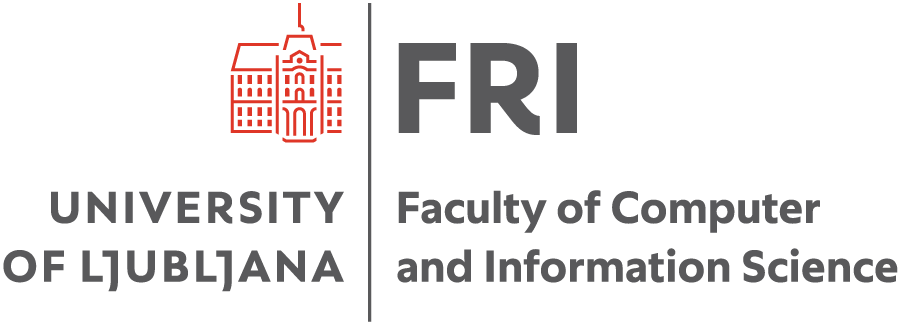- Simulating animal behaviour leads to a doctorate
Jure Demšar is a teaching assistant and researcher at the University of Ljubljana's Faculty of Computer and Information Science, where his research interests include collective behaviour, modelling natural phenomena and the development of computer games. He has recently completed a doctorate, which gave him the opportunity to develop his computer science knowledge in greater depth and gain research experience – and the letters PhD after his name. We talked to him about his doctoral studies and about his work in general.
1. You have just completed a doctorate at the Faculty of Computer and Information Science. With the information days for enrolment at the faculty just around the corner, we'd like to ask you what it was that made you decide to pursue doctoral studies?
Before my doctorate I worked for a few years at a private company. The main reason I decided to carry on with my studies was that my job at the time was fairly monotonous and wasn't giving me the challenges I was looking for – I was mainly creating classic websites and writing apps. Of course, this was only my experience: I have quite a few colleagues who are tackling interesting professional and research challenges at various companies.
2. What can you tell us about your experience as a doctoral student?
My experience of the doctoral programme was for the most part positive. Even those modules that were quite far from my field of research were largely well presented and I was able to learn a lot of useful things from them. Unfortunately in some cases we also spent time on various details that have not turned out to be significant for our research.
3. What, in your view, are the differences between undergraduate and postgraduate studies?
On the doctoral course, no one compels you to work at a set pace. Instead, you organise your time yourself, in a way that enables you to complete all the requirements within the prescribed time limits. I didn't have too much problem with this because I completed my first degree before the introduction of the Bologna system, when even at the undergraduate level there was considerably more freedom with regard to continuous study and assessment.
I should also point out that I was extremely lucky in my choice of supervisor, because Dr Iztok Lebar Bajec really invested an enormous amount of time and effort in research on my doctorate. He's also an extremely good researcher, with outstanding knowledge of all the skills covered by research – from preparation and programming to writing an article and creating visualisations. In my view the choice of supervisor is perhaps even more important than the choice of study programme, so I would advise all younger colleagues to seek the advice of senior doctoral students when it comes to choosing a supervisor.
4. The title of your doctoral dissertation is "Evolution of fuzzy animats in a competitive environment". Tell us something about it.
My work was focused on so-called artificial life, which involves the simulation of various living organisms with the help of the computer. This is an interdisciplinary field that links computer science and biology. My research covered modelling the behaviour of groups of living organisms, otherwise known as collective behaviour. Collective behaviour is an area of interest for several branches of science – from biology and medicine to computer science and robotics. I chose this topic because I have long been fascinated by the various animations of groups of animals or people that you see in films and computer games. Ever since the first part of the Lord of the Rings trilogy, practically every large crowd in a film is simulated with the help of computers, since the technology available today allows a level of quality that is capable of deceiving practically all viewers. While I wasn't developing algorithms directly for use in films, I did work with world-renowned biologists on the search for answers to various questions regarding collective behaviour. Biological research is in principle closely connected to other fields where collective behaviour is used, since a good knowledge of the phenomenon enables better simulation and animation.
5. What are your plans for the future?
I am about to set off on an extended research trip to the UK, where I will be working on the development of algorithms to simulate groups of living creatures for computer games. When I come back I hope to continue my work at the Faculty of Computer and Information Science, because I enjoy both aspects of my job as an assistant – research and teaching. For the time being I haven't really looked much beyond that.
